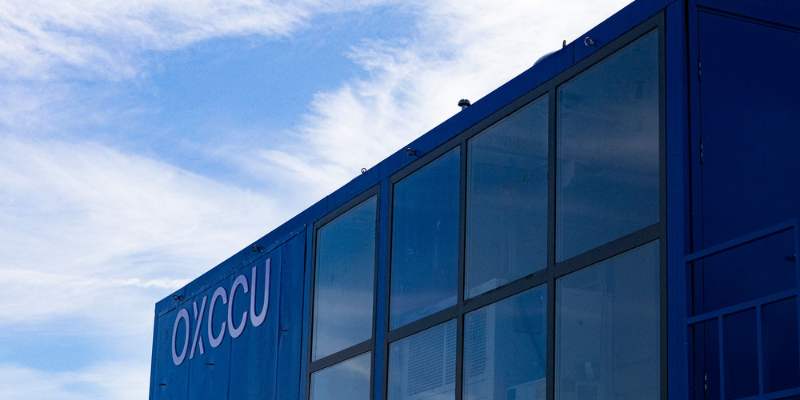
Novel catalytic technology to convert CO2 into sustainable aviation fuel by 1-step process
This event has now finished.
Room SLB/118, Spring Lane Building, Campus West, University of York (Map)
Event details
York Society of Engineers Lecture
The aviation industry is responsible for about 2.5% of global CO2 emissions, which has a significant impact on climate change due to the high carbon intensity of jet fuel and the additional effects of other pollutants emitted at high altitudes. In fact, aviation emissions have grown faster than other transport sectors and are expected to surpass pre-pandemic levels by 2025. Globally, the aviation industry aims to achieve net-zero carbon emissions by 2050, with measures including sustainable aviation fuels and technological innovations. Sustainable Aviation Fuel (SAF) is a liquid fuel blended with conventional jet fuel, requiring no engine modifications. The EU mandates increased SAF use at airports, targeting 2% by 2025 and 70% by 2050.
OXCCU is a spinout company from University of Oxford based on more than 10 years research in the Department of Chemistry, which has developed a novel process to convert carbon dioxide (CO2) and green hydrogen into sustainable aviation fuel. This process uses a unique iron-based catalyst, making it more cost- effective and environmentally friendly compared to traditional fossil-based jet fuels.
In this talk, we will present the journey of OXCCU from lab research to industrial operation, and the technology which would enable a net-zero world from aviation to chemical industry.
About the speaker
Dr Tiancun Xiao obtained a BsC from Northwest University, China in 1987 and a Ph.D of Chemical Physics (heterogenous catalysis) from Lanzhou Institute of Chemical Physics, Chinese Academy of Sciences in 1993. He then worked in the Department of Environmental Engineering, Shandong University collaborating with the World Bank and United Nations for six years before he was funded by the Royal Society Fellowship to work in the Inorganic Chemistry Laboratory, University of Oxford in 1999. He developed a series of catalysts for waste to energy and founded Oxford Catalysts Ltd in 2004 and floated the company in AIM London Stock Market in 2006. As the main technology officer, Oxford Catalysts Ltd acquired Velocys (a spinout company from DOE USA) in 2008 and moved the main operation to the USA from 2010. He returned to the University of Oxford to continue his work on catalysis focusing on CO2 conversion and utilization, and working with professor Edwards and Dr Yao, they developed a 1-step catalysis process to convert CO2 to aviation fuel or chemicals. These developments paved the foundation for the launch of OXCCU Tech Ltd, and enable the circular economy.
Partners

Venue details
Wheelchair accessible
Hearing loop
